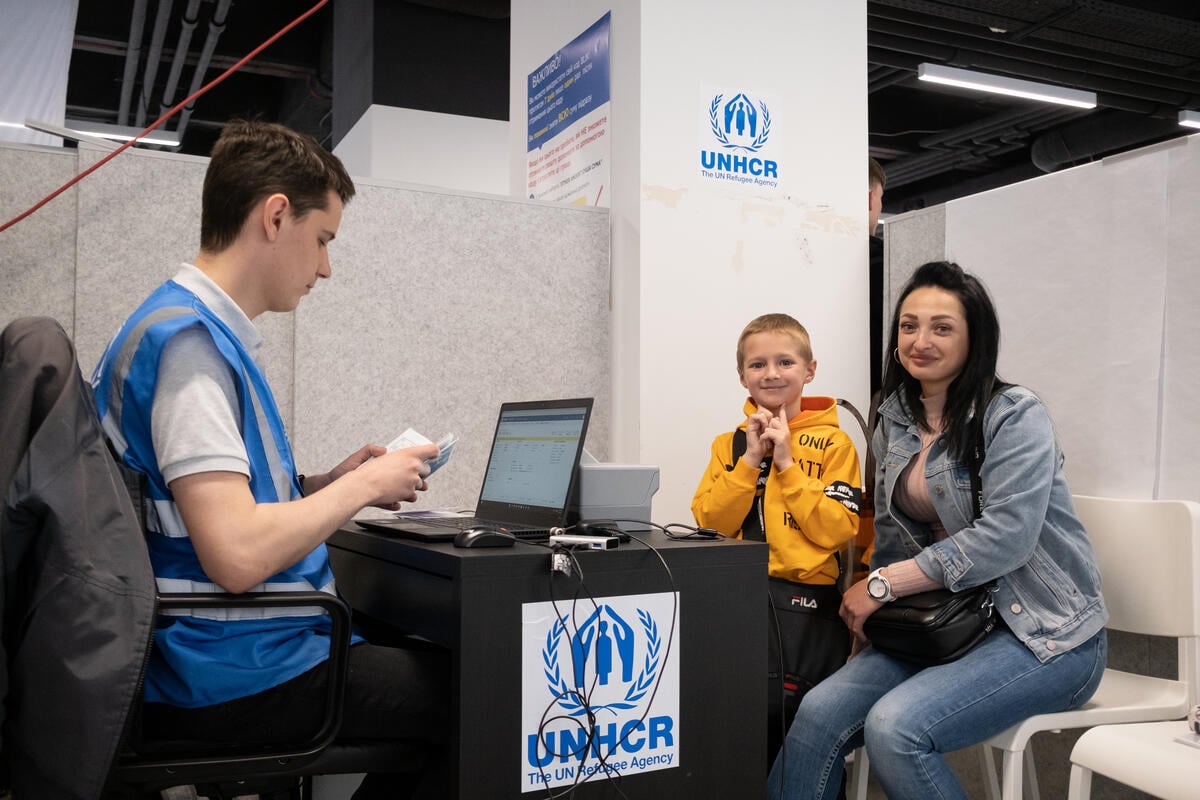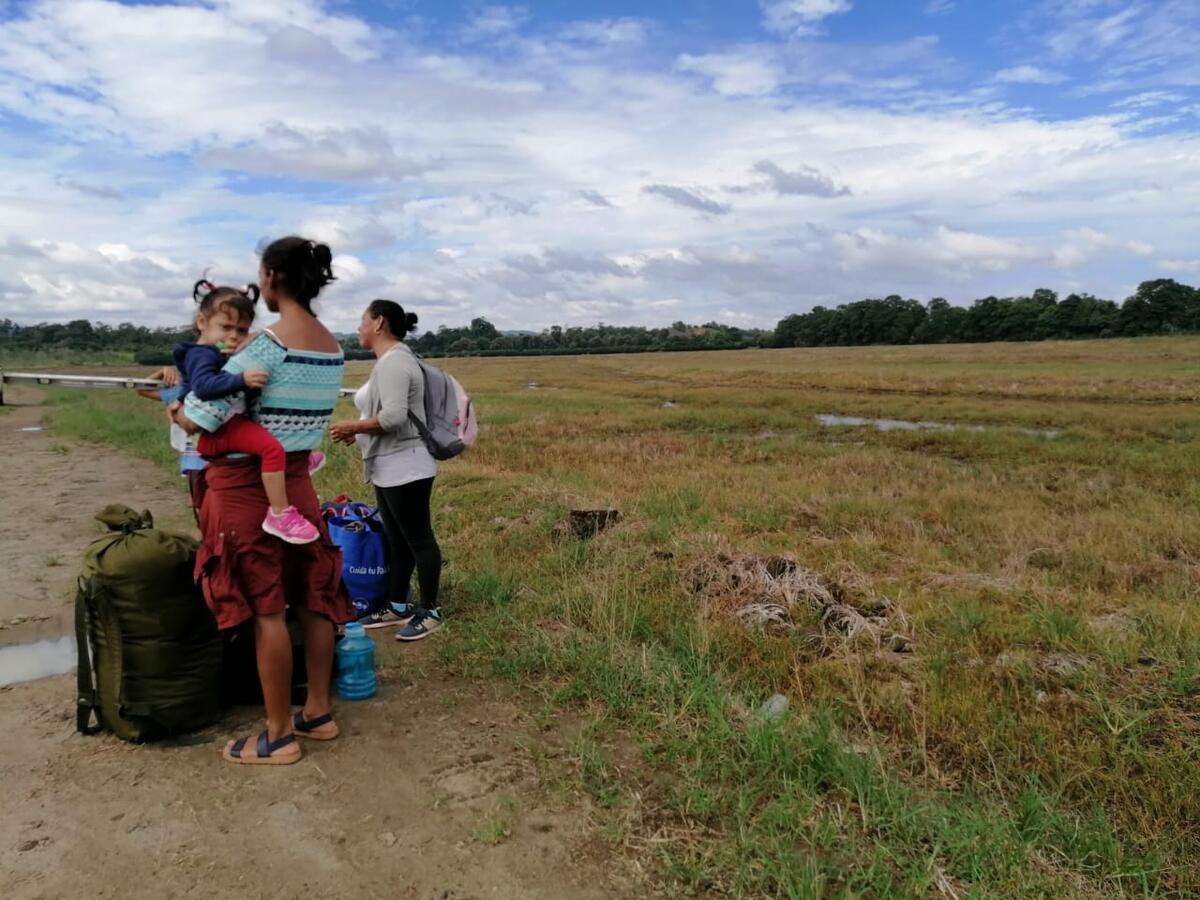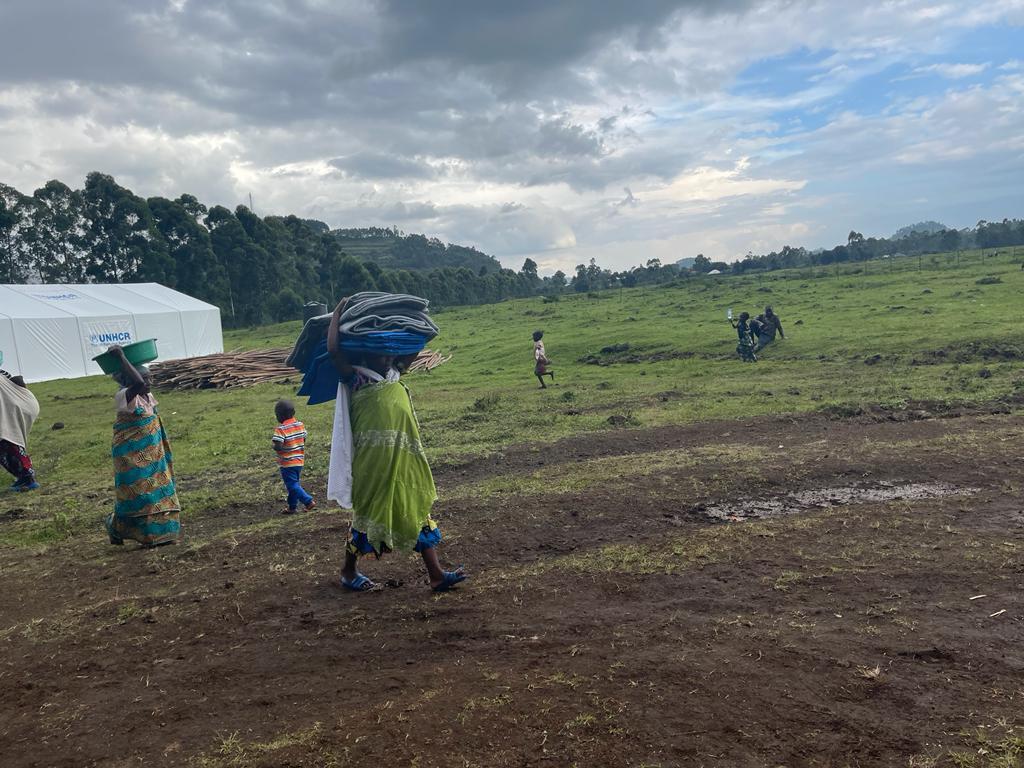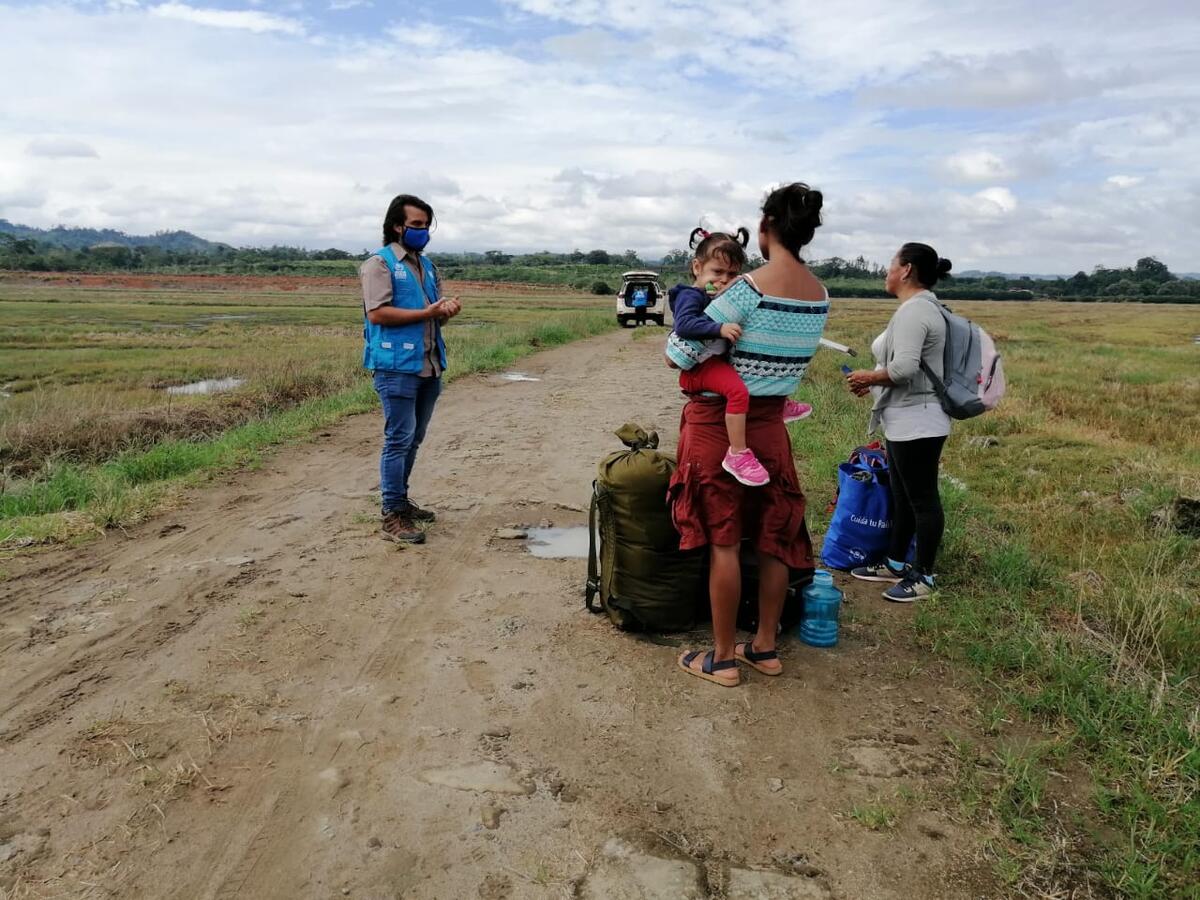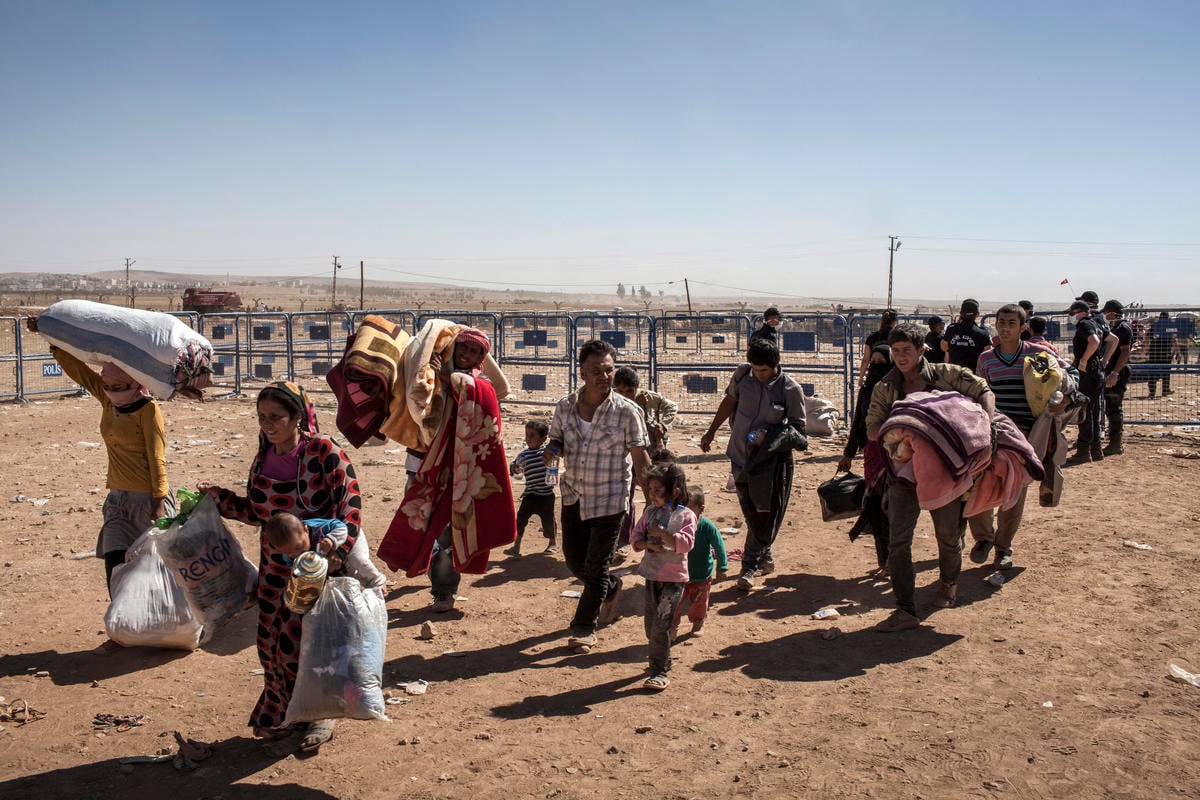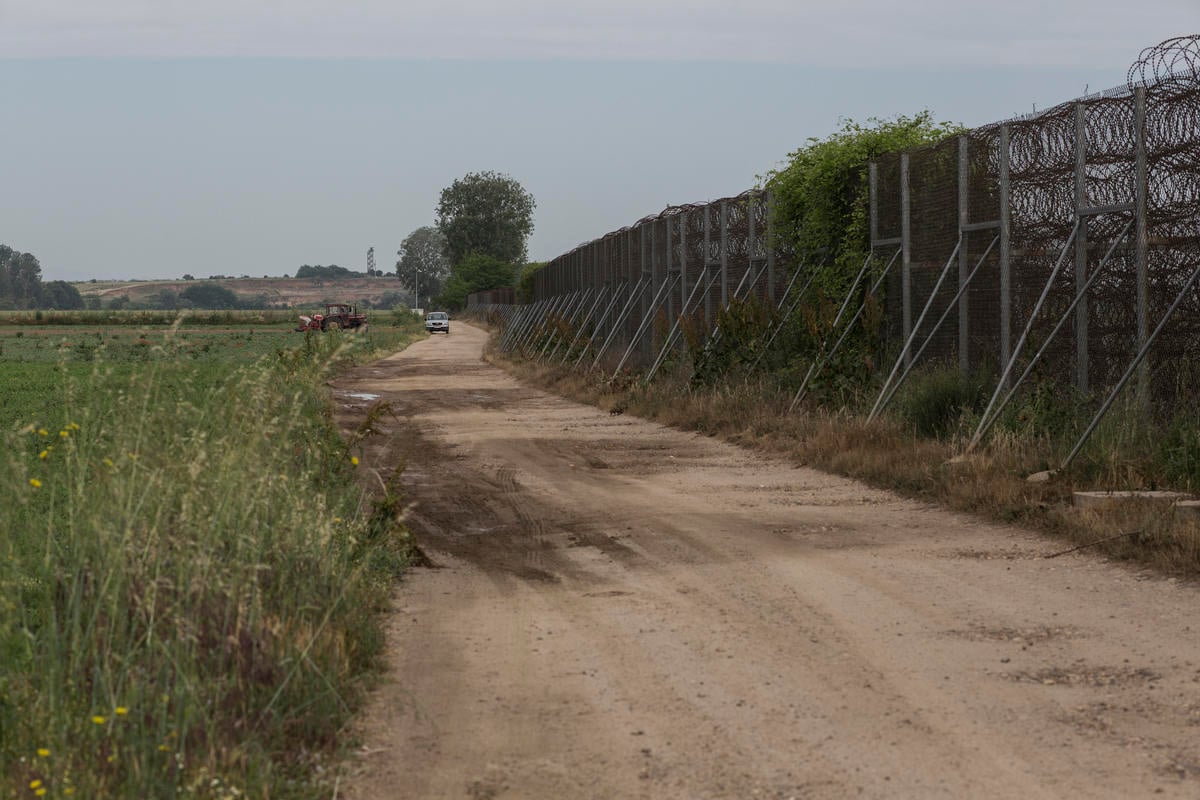South Africa tackles its growing backlog in asylum applications
South Africa tackles its growing backlog in asylum applications

PRETORIA, South Africa, July 6 (UNHCR) - Each day crowds form outside the refugee reception offices of the Department of Home Affairs, asylum seekers who have often crossed thousands of kilometres only to find that the process to gain recognition as a refugee can take years in South Africa.
The government is determined to clear this backlog of asylum applicants - now about 100,000 - over the next year. Success will mean ending both long delays and many of the problems in documentation faced by the growing queue of those awaiting a decision on requests for refugee status.
"Our goal as government is to deal head-on with the backlog of asylum applications," South African Minister of Home Affairs Nosiviwe Mapisa-Nqakula said as he launched the process on June 20, World Refugee Day.
"I hope people will appreciate that this is an attempt to begin a process of forward movements - to resolve problems of asylum seekers and refugees so that we as a government don't remain with as many asylum seekers, as we have now, whose status has not been determined or finalised in this country."
An attempt earlier this decade to clear a backlog - smaller then - failed to solve the problem. Instead, the number awaiting interviews and decisions on whether they met the requirements to be recognised as refugees grew. Some cases dated back to 1998.
There are no open conflicts in states bordering South Africa, but the country is a magnet for asylum seekers from across Africa and beyond. Unemployment may be about 30 percent in South Africa, but wealth, peace and economic growth make it a source of hope for asylum seekers and migrants.
According to the latest available government figures, pending asylum applications that had been filed by July 2005 still numbered 103,410 in early April. Of these, applicants from the Democratic Republic of the Congo were the most numerous at 13,376, or 12.2 percent of the total. Next were those from Zimbabwe at 11,026, or 10.1 percent of applicants. The remaining top five countries of origin were Ethiopia, Pakistan and Somalia. New applicants have arrived in the year since the period covered by the backlog project.
The government has put resources into shrinking the queue, which is the only major blot on what is perhaps the African continent's best record of refugee treatment. The government does not confine refugees or asylum seekers to camps and recognised refugees enjoy virtually the same rights as citizens, with the exception of the right to vote.
Temporary backlog project offices have been established in Cape Town, Durban, Port Elizabeth and Johannesburg-Pretoria. Although the official launch was on June 20, work had already begun and in March nearly 8,000 pending cases were resolved, with more than 900 individuals recognised as refugees.
Despite the pace, clearing the backlog will not be easy. There is also the danger that the number of new asylum seekers will rise; there was a jump in applications during the first three months of this year. The largest group by far had come from Zimbabwe, where the deepening economic crisis had previously produced large numbers of migrants but relatively few asylum seekers.
The project also presents major challenges to the UN refugee agency. UNHCR staff trained new home affairs department staff last year in preparation for the project and has started another round of training to improve the knowledge and skills of civil servants dealing with refugees.
UNHCR monitoring of the processing of asylum applications will also have to be stepped up to ensure that the accelerated decision-making procedures meet international standards. There is always a danger that shortening the queue will encourage unfounded applications - and a rise in applications would be matched by a rise in hasty rejections that could include legitimate refugees.
But ending the delays will remove the commonest complaint heard from asylum seekers. It could also help the government and UNHCR combat confusion that has grown up about refugees versus economic migrants.
"South Africans must shed the misconception that South Africa is a country inundated by refugees and asylum seekers," Malusi Gigaba, the deputy minister of home affairs, said at a meeting with young refugees in June. He told them he was confident that clearing the backlog would improve their lives.
That view was echoed by Ebrima Camara, the regional representative of UNHCR, after hearing refugees and asylum seekers complain about the slow processing of applications and the difficulties that caused them.
"The backlog project launched last week by the minister is an effort to address these problems you are raising here," Camara said. "It seems to me there is an effort to address the problem at the roots - that is access to the asylum process. We should applaud those efforts."
By Jack Redden in Pretoria, South Africa




